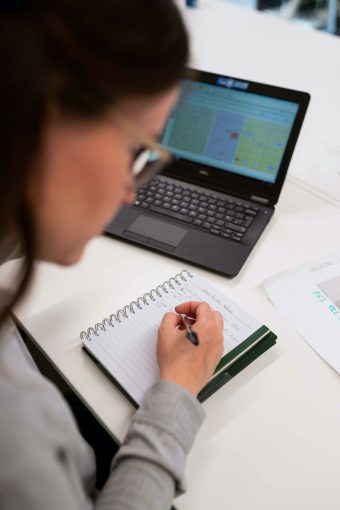
(27/8) The Psychodiagnostic Tool Development Unit (UPAP) of the Faculty of Psychology UGM held a workshop and seminar on Introduction to the Use of Analysis Software in Psychometrics. This workshop and seminar will be held for two days on 27th August and 3rd September 2021 online. This is the 4th event organized by UPAP related to data analysis training. Not only workshops and training, but this activity will also be continued with In House Training every Friday starting from 08.00 a.m to 16.00 p.m.
UPAP organizes this activity intending to complete the competence of students of the Faculty of Psychology UGM to process data. This is a follow-up to the material that has been taught in class. Wahyu Widhiarso, M.A, the head of UPAP said “In class, competence about data analysis is not being taught. It is more on theory and a little training to improve mastery. To specifically learn how to operate SPSS, JAMOVI, and so on, students have to look for themselves to improve their competence.”
Wahyu Widhiarso, M.A, is not only the Head of UPAP and a lecturer at the Faculty of Psychology UGM, but he is an expert practitioner in the field of psychometry who is also become a speaker at this workshop and seminar. Wahyu delivered the material with the title Getting to Know the Data Analysis Program. He started his presentation with a general overview of the reasons why studying analysis software, research in the field of psychology, then continued with the introduction of SPSS software. SPSS was explained earlier by Wahyu because SPSS is the most popular software and it is easy to operate.
In the next session, the participants were accompanied by Wahyu Jati Anggoro, M.A, a lecturer at the Faculty of Psychology UGM who is also an expert in the field of psychometry. He explained the operation of SPSS and JAMOVI analysis software. He explained that participants will be invited to learn more and in-depth related to the operation of the two software in the In House Training. Participants are also allowed to submit data to be analyzed at the next meeting.
